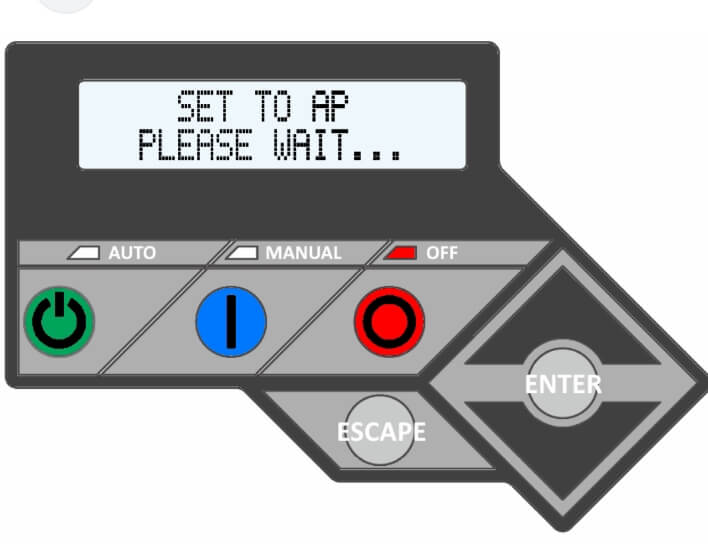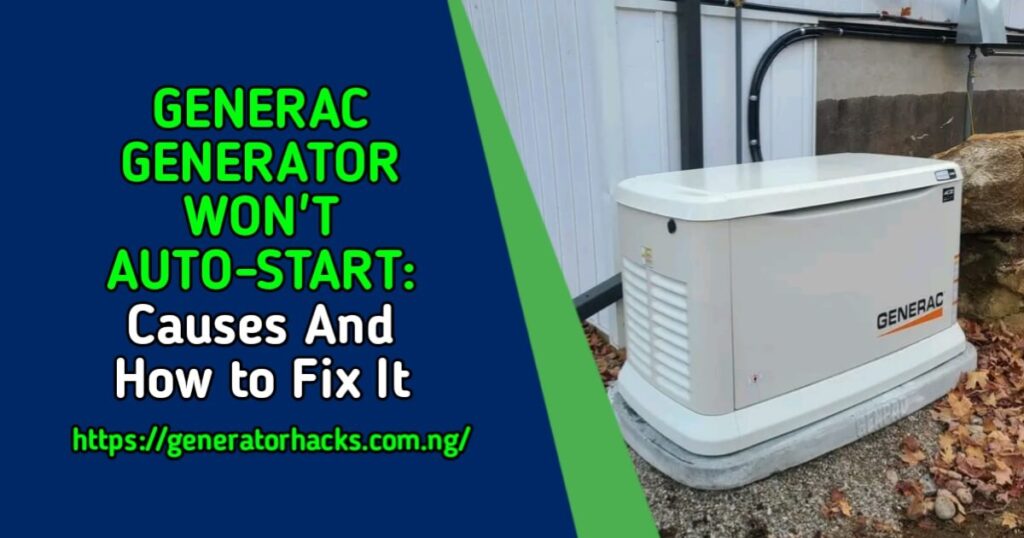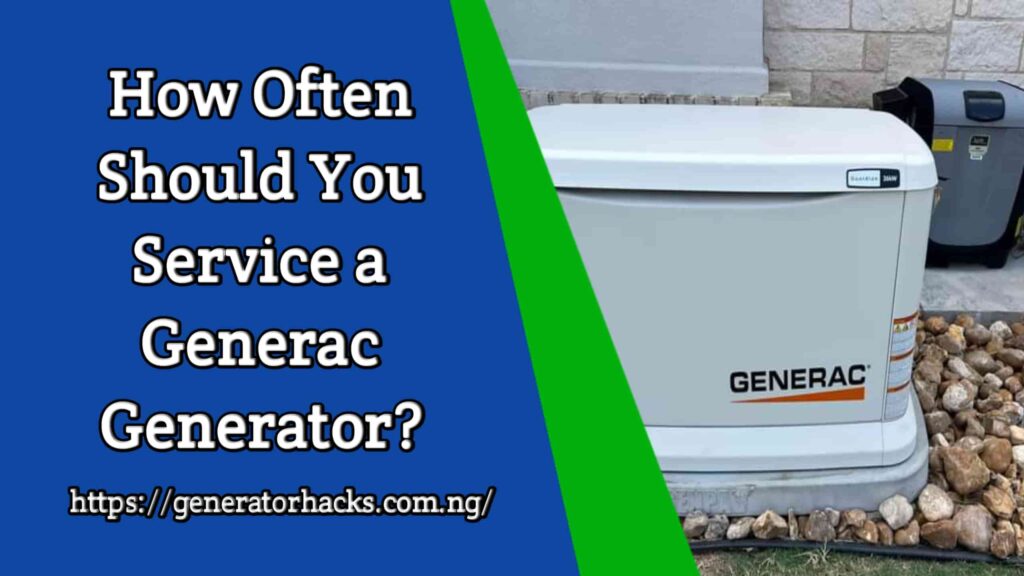As an Amazon Associate, we earn from qualifying purchases. This does not affect the price you pay or the quality of the products you buy. For more information, please read the full affiliate disclosure here.
Generac’s low oil pressure shutdown is like a safety ninja in their power generators. It’s a smart feature that automatically shuts down the generator when it senses the oil pressure getting too low.
Why? Well, low oil pressure means there’s not enough lubrication going on, and that’s a big no-no for the engine.
You see when the engine is running, it needs oil to keep things running smoothly. It’s like the engine’s own personal lubricant, reducing friction and keeping everything in tip-top shape.
But if the oil level drops or there’s a problem with the oil pump or filter, the oil pressure can take a nosedive, signaling trouble in the lubrication department.
To save the day (and the engine), Generac generators have a cool low-oil pressure sensor. This sensor keeps a constant eye on the oil pressure and talks to the generator’s control system.
When the oil pressure goes below a certain level, it’s a red flag that something’s wrong with the oil system or the oil level is too low.
That’s when the low oil pressure shutdown feature springs into action! It’s like a superhero, instantly stopping the generator’s engine to prevent it from running without proper lubrication.
It’s a smart move because running the engine with low oil pressure can cause serious damage like overheating or excessive wear and tear.
Henceforward, in this article, we will discuss the common causes and solutions for Generac Low oil pressure shutdown and what you should do to prevent it in the future.
Common Causes and Solutions for Generac Low Oil Pressure Shutdown Activation
1. Insufficient Oil Level
When it comes to the Generac low oil pressure shutdown, one of the key culprits behind its activation is insufficient oil level.
For instance, if the oil level in the generator is running dangerously low, it’s like running a car on an empty gas tank. And just like a car won’t get very far without fuel, a generator won’t fare well without enough oil.
So, how does the oil level get too low in the first place? Well, there are a few possible scenarios.
First off, there could be a sneaky oil leakage going on. It’s like the oil is playing hide-and-seek, escaping from where it’s supposed to stay and leaving the generator thirsty for lubrication.
Another possibility is oil consumption. Over time, the generator engine can gobble up some of that precious oil, and if it’s not regularly topped up, the level can plummet.
But here’s the thing: it’s not just about the oil vanishing mysteriously. Neglecting those routine oil checks can be a recipe for disaster.
You know, life can get busy, and it’s easy to overlook the small things. But when it comes to oil levels, it’s crucial to stay on top of it.
Regularly checking the oil level and making sure it’s at the right mark can save you from the headache of dealing with low oil pressure and the subsequent shutdown.
When the oil level dips too low, the consequences are clear. It affects the oil pressure in the generator, which is like the lifeblood of the engine.
Without sufficient oil pressure, the engine won’t get the lubrication it needs to function smoothly. It’s like trying to run a marathon without any water to keep you going. It’s a recipe for disaster.
Solutions
To protect the engine from potential harm, the low oil pressure shutdown feature springs into action. It’s like a guardian angel for the generator, stepping in to prevent any further damage.
So, if you ever find yourself in a situation where the generator shuts down due to low oil pressure, it’s time to investigate the oil level.
Check for any leaks, make sure to keep up with regular oil checks, and top up the oil if needed.
Remember, a little bit of attention to the oil level can go a long way in keeping your generator running smoothly and avoiding any unwanted shutdowns.
Also Read:- FAQs: What Type of Oil Does a 22kw Generac Generator Use?
2. Contaminated Oil
Now let’s talk about another troublemaker when it comes to the Generac low oil pressure shutdown: contaminated oil.
You see, oil plays an important role in keeping the generator’s engine running smoothly. It’s like the lifeblood that ensures all the moving parts are well-lubricated and working harmoniously together. But what happens when this vital fluid gets tainted by impurities, debris, or dirt?
Well, imagine you have a refreshing glass of water, but someone accidentally drops a handful of sand and dirt into it.
Suddenly, that crystal-clear liquid becomes murky and gritty. Similarly, when the oil in the generator becomes contaminated, it’s like adding unwanted intruders into the mix.
These impurities can include tiny particles, debris, or excessive dirt that find their way into the oil.
Now, contaminated oil might not be able to do its job properly. Instead of gliding smoothly and providing that much-needed lubrication, it ends up hindering the engine’s performance.
Think of it as having a squeaky bicycle chain that desperately needs some oil. If you don’t clean and lube it, the chain will start to grind and make unpleasant noises. The same goes for the generator’s engine when it’s running on contaminated oil.
When the oil fails to deliver proper lubrication due to contamination, the consequences start to pile up.
The oil pressure begins to drop, signaling that something is amiss. As the oil pressure decreases, it sets off a chain reaction that triggers the low oil pressure shutdown feature. It’s like a fail-safe mechanism designed to protect the engine from further damage caused by inadequate lubrication.
Solutions
So, to keep the generator running smoothly and prevent the dreaded shutdown, it’s crucial to pay attention to the oil quality.
Regular maintenance and oil changes are essential to ensure that the oil remains clean and free from impurities.
By keeping the oil in top-notch condition, you’re providing the engine with the lubrication it needs to operate at its best and reducing the risk of triggering the low oil pressure shutdown.
Also Read:- How to Choose the Right Oil Filter for Generac Generator
3. Faulty Oil Pressure Sensor
Now, let’s dive into a sneaky little culprit that can throw the Generac low oil pressure shutdown feature for a loop: the faulty oil pressure sensor.
This sensor is like the eyes and ears of the generator, constantly keeping tabs on the oil pressure to ensure everything is running smoothly. But hey, sometimes even the most well-intentioned sensors can go haywire.
Do you know those moments when your car’s fuel gauge goes bonkers and jumps from full to empty in a matter of seconds? It can leave you scratching your head and wondering if you’re really about to run out of gas or if it’s just a glitch. Well, something similar can happen with the oil pressure sensor in the generator.
Sometimes, due to various factors or wear and tear, the oil pressure sensor can become faulty. It’s like getting a mischievous gremlin inside the sensor that messes with its ability to provide accurate readings.
So, even though the actual oil pressure might be humming along just fine within acceptable limits, this little sensor may falsely perceive it as low oil pressure.
Now imagine you’re sitting in a room with a smoke detector that goes off at the slightest hint of steam from your morning coffee. It’s frustrating, right? Well, the faulty oil pressure sensor can behave similarly. It may send out false alarms, tricking the generator’s control system into activating the shutdown feature unnecessarily.
When the shutdown feature is activated based on inaccurate readings from the oil pressure sensor, it can be quite a hassle. It’s like an overprotective guardian that jumps the gun and shuts things down when there’s no real danger. But hey, it’s better to be safe than sorry, right?
Solutions
If you find yourself dealing with a shutdown triggered by a faulty oil pressure sensor, don’t fret. It’s a good idea to have a professional take a look and diagnose the issue.
They can assess whether the sensor needs calibration, repair, or even replacement. By addressing the problem with the sensor, you can ensure that it accurately detects the oil pressure, allowing your generator to run smoothly without any unnecessary shutdowns.
4. Clogged Oil Filter
Let’s talk about a pesky little troublemaker that can wreak havoc on your Generac generator: the clogged oil filter.
Let’s say, for instance, your generator’s engine is like a thirsty traveler in need of a refreshing drink. The oil is its life-giving elixir, ensuring that every component works together harmoniously. But when that vital oil flow encounters a dirty or clogged oil filter, it’s like trying to gulp down a smoothie through a blocked straw.
You know those times when you try to suck up a thick milkshake using a straw that’s filled with gunk? It’s frustrating! The thick consistency of the shake makes it nearly impossible to get any satisfying sips.
Well, the same principle applies to your generator’s engine. A dirty or clogged oil filter acts as an obstacle that obstructs the smooth flow of oil through the engine, causing all sorts of problems.
When the oil filter gets overwhelmed with dirt, debris, or other contaminants, it’s like the filter is getting clogged with unwanted guests.
These particles accumulate over time and form a barrier that restricts the oil flow, just like trying to force a river through a narrow channel. As a result, the engine receives less oil than it needs, and the oil pressure takes a nosedive.
Now, low oil pressure is bad news for your generator. It’s like a red flag waving frantically, signaling that there’s trouble ahead. When the oil pressure decreases, the generator’s control system takes notice and springs into action. It knows that without proper oil pressure, the engine won’t receive the lubrication it requires to function smoothly and efficiently.
To safeguard the engine from potential harm, the low oil pressure shutdown feature comes to the rescue. When the shutdown feature is triggered by decreased oil pressure due to a clogged filter, it’s a protective measure to prevent further damage.
Solutions
To prevent such a frustrating scenario, regular maintenance is essential. Ensure that the oil filter is cleaned or replaced according to the manufacturer’s recommendations.
By keeping the oil filter in good shape, you’re ensuring a clear path for oil to flow through the engine, maintaining optimal oil pressure, and minimizing the risk of triggering the low oil pressure shutdown.
So, next time you’re taking care of your generator, remember to give some attention to that hardworking oil filter. Keep it clean and clear of any obstructions, and your generator will thank you with smooth and uninterrupted operation.
Also Read:- How to Change the Oil Filter for Generac Generator [Complete Guide]
5. Engine Overloading
Let’s talk about a common mistake that many of us have made at some point: engine overloading. It’s like trying to fit too many passengers into a small car or piling way too many textbooks into your backpack. Just like those situations, running your Generac generator beyond its rated capacity can lead to some serious consequences for the engine.
When you push a generator past its limits, it’s like asking it to perform a Herculean feat. You see, every generator is designed with a specific capacity in mind, a sweet spot where it can operate efficiently and effectively. But when you start demanding more power than it’s capable of providing, you’re putting excessive strain on the engine, like asking your body to lift weights that are too heavy.
Now, imagine yourself trying to carry a load that’s way too heavy. The strain on your muscles is tremendous, and it’s difficult to maintain your balance and move smoothly. Similarly, when you overload your generator, the engine has to work extra hard to meet the increased power demand. This strain not only affects the electrical output but also has a ripple effect on the engine’s vital functions.
One of the areas affected by engine overloading is oil circulation. The engine relies on a steady flow of oil to keep everything well-lubricated and running smoothly. But when you demand more power than the generator can handle, it disrupts the delicate balance of oil circulation. The increased strain on the engine can cause the oil pressure to drop, like a roller coaster plunging down a steep slope.
When the oil pressure decreases significantly due to engine overloading, the low oil pressure shutdown feature comes into play. It’s like a safety net, activated to protect the engine from further damage. The shutdown feature detects the drop in oil pressure and triggers a shutdown, preventing the engine from operating under potentially harmful conditions.
Solutions
To avoid this scenario, it’s important to operate your generator within its rated capacity. Take the time to understand the generator’s limitations and avoid pushing it beyond what it can handle. By doing so, you’re ensuring that the engine maintains optimal oil circulation, proper oil pressure, and smooth operation.
Also Read:- Generator Surging: Causes and Solutions
Maintenance Tips for Avoiding Low Oil Pressure Shutdown in the Future
1. Regular Oil Checks
It’s important to keep a close eye on your generator’s oil level. Take a few moments at least once a month to check the oil level and ensure it’s at the right mark.
If you notice that the oil level is getting low, don’t ignore it! Top it up promptly to maintain the proper oil level. Think of it as giving your generator a refreshing drink to keep it hydrated and happy.
2. Scheduled Oil Changes
Just like we humans need regular check-ups with the doctor, your generator needs regular oil changes to stay in tip-top shape. Generac provides guidelines for oil change intervals, and it’s crucial to follow them.
By sticking to the recommended schedule, you’re ensuring that the engine receives fresh, clean oil, which is essential for optimal performance. Don’t procrastinate on those oil changes; your generator will thank you for it.
3. Filter Replacement
Ah, the trusty oil filter. It plays a vital role in keeping the oil flowing smoothly through the engine. Over time, the oil filter can become clogged with dirt and debris, hindering proper oil flow.
To prevent this from happening, it’s important to replace the oil filter as recommended by Generac. By doing so, you’re ensuring that the oil can circulate freely and reach all the nooks and crannies of the engine, providing the lubrication it needs.
4. Clean Air Filters
Good air quality is not only important for us but also for your generator’s engine. Dirty air filters can hamper engine performance and, believe it or not, even lead to low oil pressure.
So, don’t forget about those air filters! Regularly check them and clean or replace them as needed. By keeping the air filters clean, you’re ensuring that the engine breathes easily, maximizing its efficiency and helping to maintain proper oil pressure.
5. Load Management
Just as we need to be mindful of our limits, it’s crucial to be mindful of your generator’s limits too. Avoid overloading it by demanding more power than it’s rated for.
Excessive demand can strain the engine, leading to decreased oil pressure. So, be conscious of the power you’re drawing from your generator and ensure it stays within its safe operating capacity. By doing so, you’re helping to protect the engine and maintain optimal oil pressure.
6. Professional Servicing
While some maintenance tasks can be handled on your own, it’s also wise to schedule periodic professional servicing for your generator. These experts have the knowledge and experience to identify any underlying issues that may escape your attention.
By addressing potential problems early on, you can prevent them from escalating into larger, costlier issues down the road. So, don’t hesitate to schedule that professional servicing to keep your generator in prime condition.
Final Thought
Low oil pressure sensors have been helpful to a lot of Generac generator owners, in short, not only Generac generator owners but all generator owners like you.
And sometimes, it can be a pain in the neck especially when the sensor is malfunctioning. Hence, I hope with the help of this article, you’ll be able to know what to do and how to avoid it in the future when you encounter the same issue.
Other Articles on Generac Generators You May Enjoy!
Stay Connected with Us!
Follow us on Facebook and Twitter for the latest updates on staying safe online. Don't forget to subscribe for more tips directly in your inbox!
Follow on Facebook Follow on X Follow on Pinterest Join Our Private Facebook Group







